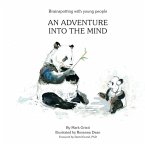In this classic work of 1963, Karl König explains the various characteristics of first, second, and third-born people, without losing sight of the tremendous individuality of the human being. Just as our environment shapes our language, social behavior and mannerisms, so our place in the family order also determines how we encounter life. This is an invaluable handbook for parents, teachers, and care givers. Over the years it has become a definitive reference on the subject of child development.
Hinweis: Dieser Artikel kann nur an eine deutsche Lieferadresse ausgeliefert werden.
Hinweis: Dieser Artikel kann nur an eine deutsche Lieferadresse ausgeliefert werden.








